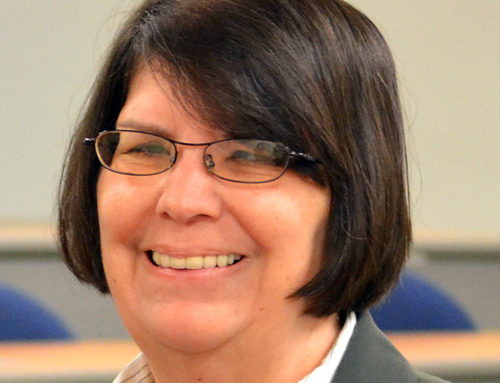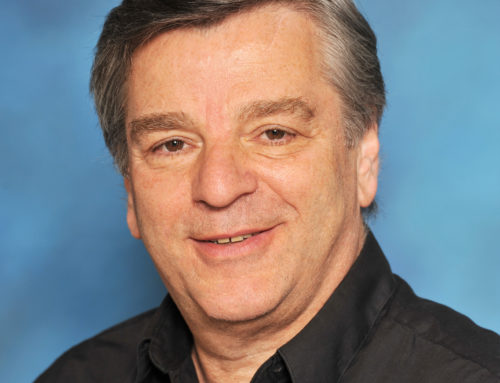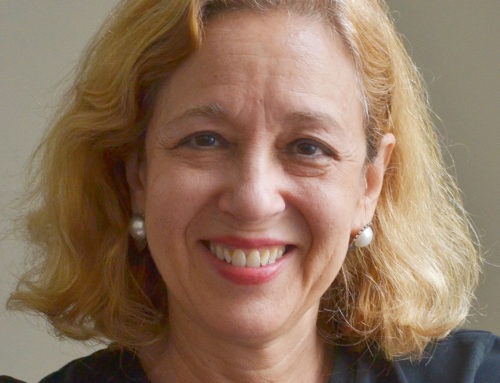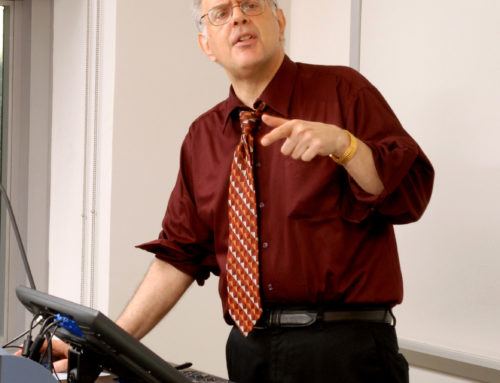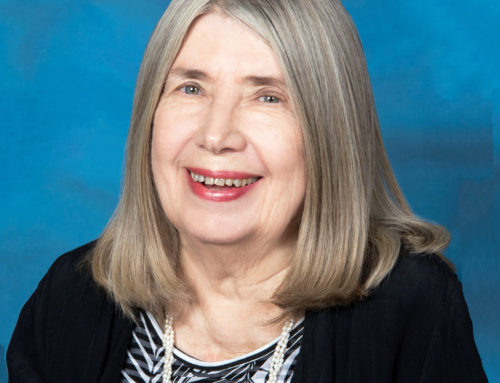Retiring Faculty
Dr. Timothy Dugan: The Art of Communication
By Lois Elfman
Over the course of 20 years at St. Francis College, Dr. Timothy Dugan has expanded the minds of students by introducing them to different types of theater and heightening their awareness of the impact of writing. In addition to chairing the Department of Communication Arts, he helped transform the Speech and Theater program to Performance Studies, for which he offers thanks to Professor Kate Grant, who contributed greatly to the program.
Dugan came to SFC with a wealth of experience in experimental theater venues in New York City, including Ensemble Studio Theater, the Irish Arts Centre, Circle Rep Lab, Primary Stages, and Joseph Papp’s New York Shakespeare Festival.
These past two decades, Dugan helped St. Francis students learn how to be more effective communicators, which included moderating the annual Delaney Speech Contest and co-founding the SFC chapter of Lambda Pi Eta (communications honor society).
What has it been like exposing young people to writing?
TD: We have a unique course at St. Francis College in the Communication Arts department called Writing for Performance, which is different from playwrighting, screenwriting and creative writing. Writing for Performance encompasses any type of writing that’s meant to be up on its feet. It can be monologues, dialogue. It’s for the Communication Arts major who embraces the idea that someday they might have to write for a performance.
I have an exercise I do at the beginning of every class. I ask the students to discuss anything that they’ve experienced over the week in the media in terms of writing. From any media, any medium. I ask them to talk about the writing. Is there anything special about the writing that interested you? We do that for about a half hour for every class session.
How have you seen your students’ horizons expand as they’re exposed to new ideas through theater and literature?
TD: They’ve become much more inclusive of theater over the years. Previous to that, students were into television and music. They were into watching TV, making videos and producing music. I was very impressed with their talents and techniques and their media literacy, but there was very weak theater ethos, meaning theater consciousness. That has changed radically through guest lecturers and most importantly through at least one field trip every semester.
What kinds of theater?
TD: That was the challenge for me, to find something accessible and really meaningful for the students. Not just taking them to a Broadway show every semester. For instance, two years ago there was a Frida Kahlo exhibit at the Brooklyn Museum. We screened the film about Frida Kahlo (Frida, starring Salma Hayek) and walked through an exercise called character profile, where we describe a person—sociological aspects, psychological, physical, economic—and we build a profile.
Then we went to the Frida Kahlo exhibit and we saw not only her paintings, but all the artifacts. Her physical condition was very traumatic. She was held together by screws and wires. We saw these strange, Medieval devices that her father had built to help hold her together. Then, we rewrote the profiles and they were amazing.
What were some of your experiences with the annual Delaney Speech Contest, which Prof. Francis Delaney originally launched to help students lose their Brooklyn accents?
TD: The idea now is about being a better communicator, not necessarily a better speaker, but about being persuasive and informative. We invite students in across the curriculum.
How has St. Francis College’s Franciscan mission impacted your teaching?
TD: The Franciscans say you have to go beyond tolerance. You have to go to fraternity. The original word for hospitality is a form of risk taking. Not only to be welcoming, but invite people in that you don’t know. The Franciscans taught me you have to take chances.
Is there a moment, class or event that especially stands out?
TD: Sister Margaret Carney, the former president of St. Bonaventure University (2004–16) spoke at St. Francis College about seven or eight years ago and it was transformative. When people asked her what she changed at St. Bonaventure, she said, “the cafeteria.” Everybody was expecting some heady answer about curriculum and vision, theology and so forth. She said, “It’s demoralizing three years in a row our college was named the worst food. For students to wake up every morning and to see that was disgraceful.” Her mission was to build a table of plenty for everybody at the college. What a gutsy call.
What ongoing relationships have you sustained with St. Francis alumni who you’ve taught and mentored over the years?
TD: The Lambda Pi Eta chapter honors an alum every year. We bring back a person who’s working in the industry and let them speak and share their experiences. The communication arts students constantly call and email me. It’s like they’re checking up on me and I’m so flattered by it.
Do you have any message you want to share regarding the ongoing challenges due to COVID-19?
TD: I used to think the word community building was a little bit corny and overused, but now, over the COVID experience, I embrace the word community. Maybe we should go back to the old word neighborhood. St. Francis should see itself as a neighborhood.


